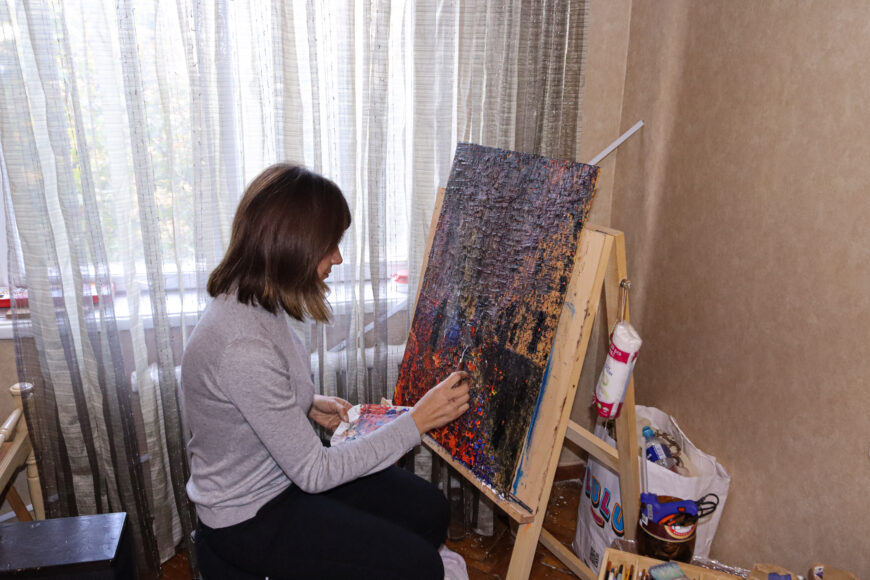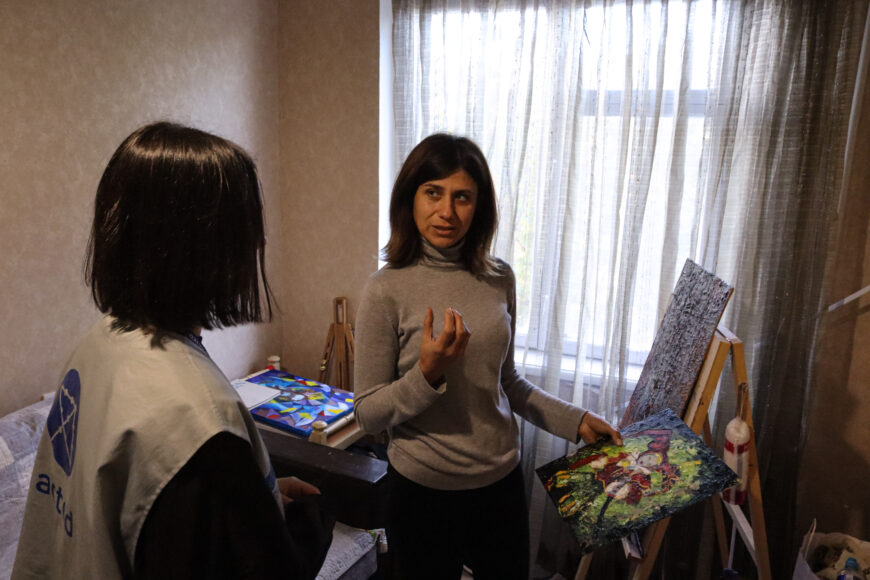
Violence against women, including domestic violence, has become a widespread and entrenched problem in the Republic of Moldova. According to UNICEF, over 63% of women and girls aged 15-65 have experienced at least one form of partner violence. The Ministry of the Interior reports that 22 women died at the hands of domestic abusers in Moldova in 2023 and 24 in 2022.
When they leave their home, survivors of domestic violence seek shelter, legal or psychological assistance. However, this is not always sufficient to enable them to live independently and avoid returning to their abuser.
In the latter part of 2022, Acted joined forces with IMPACT Initiatives, People in Need, and the Norwegian Refugee Council to aid Ukrainian refugees and local vulnerable communities in their efforts to cope with the consequences of the war in Ukraine. This resulted in the formation of the ‘PLACE’ Consortium. As a member of ‘PLACE’, Acted provides financial assistance to address the urgent housing needs of refugees and vulnerable Moldovan households. This assistance, made possible through the European Union’s Humanitarian Aid, covers accommodation costs for 695 households for up to six months.
Stefania’s past
Stefania* is the mother of two little girls. In March 2024, after experiencing systematic domestic violence, she left her husband and started a new life with her daughters.
At first, I was afraid to go outside the walls of the crisis centre with the girls because I was afraid that my husband would take them away from me, because my husband had forced the idea on me. During the time I lived at the centre, my mental state calmed down.
The crisis centre helped enrol the woman’s daughters in school and kindergarten and facilitated her employment. In addition to the support, they received from the centre, Stefania and her family were referred to Aсted’s rental assistance programme, which provided them with financial support for rental six month.
Stefania's present

During the time of the project, Stefania was able to focus first, her professional development, and second, even more important, on the process of mental recovery. Embracing this positive motion and keeping in mind her proposals for the new start, she started pursuing her long-held aspirations and rekindling past interests.
Back in the day, Stefania had a passion for hiking and camping. Now she does it with her daughters and has found it’s an interest they share.
‘The girls run around; they socialise. I want us to go backpacking in the mountains. So, they know that life is pretty cool. ‘- says Stefania. One of her great passions is drawing. Art has become more and more her way of expressing her feelings, especially in a moment of struggle, and it is now an additional means of earning a living. Stefania dreams of making it a full-time job, pointing out that being busy with household chores and work leaves little time for creativity. Now, she is working on a painting representing the Holocaust. It shows the victims of a concentration camp within its walls, while in the background, a drop of white light symbolises hope for a better future.
The case of Stefania illustrates the significance of implementing a project and providing assistance to individuals exposed to violent environments. Although the project will come to an end, Acted is dedicated to extending support to people in need and accompany them in a path towards a better a life.